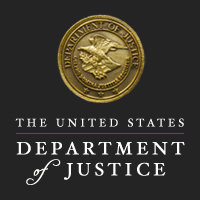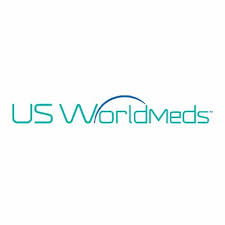Connecticut
The Justice Department announced Tuesday that US WorldMeds LLC (USWM) has agreed to pay $17.5 million to resolve allegations that it violated the False Claims Act, according to officials.
The company violated the law by paying kickbacks to patients and physicians to improperly induce prescriptions of its drugs, Apokyn® and Myobloc®, officials stated.
 USWM is a pharmaceutical manufacturer headquartered in Louisville, Kentucky.
USWM is a pharmaceutical manufacturer headquartered in Louisville, Kentucky.
“The Department of Justice is committed to ensuring that physicians’ and patients’ selection of medications is not influenced by improper financial considerations,” said Assistant Attorney General Jody Hunt of the Department of Justice’s Civil Division. “The nation’s health care programs and taxpayers deserve health care companies that play by the rules, including the Anti-Kickback Statute.”
When a Medicare beneficiary obtains a prescription drug covered by Medicare Part D, the beneficiary may be required to make a partial payment, which may take the form of a copayment, coinsurance, or a deductible (collectively “copays”), according to authorities.
Congress included copay requirements in the Medicare program, in part, to encourage market forces to serve as a check on health care costs, including the prices that pharmaceutical manufacturers can demand for their drugs.
Under the Anti-Kickback Statute, a pharmaceutical company is prohibited from offering, directly or indirectly, any remuneration — which includes paying patients’ copay obligations — to induce Medicare patients to purchase the company’s drugs, officials maintain.
USWM substantially increased the price of Apokyn in or around January 2012, a decision that resulted in a corresponding increase to Medicare patients’ copays — which for many patients exceeded $5,000 per year.
The federal government alleged that, from the time of the price increase through June 30, 2013, USWM illegally paid Medicare patients’ Apokyn copays through a third-party foundation.
During the relevant time period, USWM allegedly knew it was the only donor to the foundation’s Parkinson’s Disease fund and that virtually all of the fund’s donations were spent on Medicare Apokyn patients, according to officials.
The United States alleged that these payments represented illegal inducements to patients in violation of the Anti-Kickback Statute and False Claims Act.
The United States also alleged that USWM paid kickbacks to two physicians to induce prescriptions of Apokyn and Myobloc.
Specifically, the United States alleged USWM paid these physicians excessive speaking and consulting fees and provided impermissible entertainment, such as lavish meals, private plane rides, and all-expense paid trips with their spouses (including trips to the Kentucky Derby).
“Pharmaceutical companies and other healthcare providers that pay kickbacks to patients and physicians to improperly induce drug prescriptions drive up the costs of health care and divert critical resources from the Medicare program,” said U.S. Attorney John H. Durham for the District of Connecticut. “This case originated with the filing of whistleblower lawsuits currently pending in the District of Connecticut, and the whistleblowers will be handsomely rewarded for exposing this scheme. We encourage all individuals who are aware of fraud against the government to come forward. The Connecticut U.S. Attorney’s Office will continue to pursue companies and providers that defraud federal health care programs.”
Contemporaneously with the False Claims Act settlement, USWM has entered into a “Corporate Integrity Agreement” with the Department of Health and Human Services, Office of Inspector General.
The five-year CIA requires, among other things, that USWM implement measures designed to ensure that its promotional activities and any arrangements and interactions with third-party patient assistance programs comply with the law, according to officials.
In addition, the CIA requires reviews by an independent review organization, compliance–related certifications from company executives and Board members, and the implementation of a risk assessment and mitigation process.
“Kickback schemes can undermine our healthcare system, compromise medical decisions, and waste taxpayer dollars,” said Phillip Coyne, Special Agent in Charge, Office of the Inspector General of the U.S. Department of Health and Human Services. “We will continue to hold pharmaceutical companies accountable for subverting the charitable donation process in order to circumvent safeguards designed to protect the integrity of the Medicare program. Simply put, OIG’s goal is to ensure that patients receive the appropriate treatments and therapies according to their medical needs, without the corrupt or profit-driven influence of drug manufacturers.”
The False Claims Act allegations resolved by the settlement were originally brought in lawsuits filed by whistleblowers under the qui tam or whistleblower provisions of the False Claims Act, which allow private parties to bring suit on behalf of the government and to share in any recovery.
The whistleblowers will receive $3.1 million as their share of the recovery.

